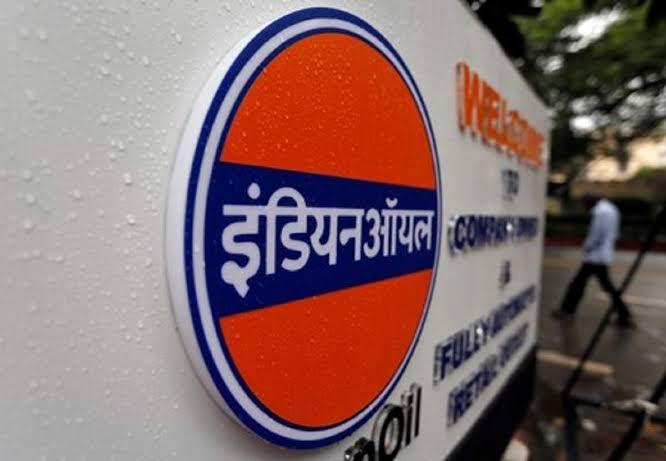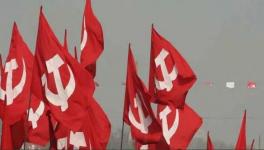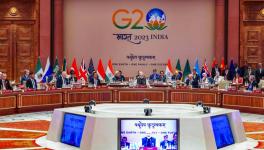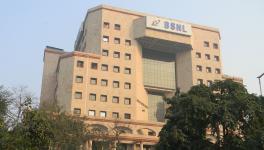Spectre of Privatisation Now Looms Over IOC, Centre Mulls Reducing Stake to Below 51%

New Delhi: After deciding to invite top global giants to bid for stakes in two oil companies, Bharat Petroleum Corporation Limited (BPCL) and Hindustan Petroleum Corporation Limited (HPCL), the spectre of privatisation now looms over another major public sector unit -- Indian Oil Corporation (IOC).
The Modi Government is planning to reduce its stake in the Indian Oil to below 51%, reported Business Standard. The Centre currently holds 51.5% directly in the oil corporation and another 25.9% through state-owned Life Insurance Corporation of India, Oil and Natural Gas Corporation (ONGC) and Oil India Ltd.
As per the report, the government can divest around 26.4% of its holding in the corporation and the proposal can be discussed, as early as next week. This will lead to the Centre becoming a minority shareholder in the company.
Earlier, the petroleum ministry made plans to approach the multinational companies – both domestic and foreign – after the Union Cabinet cleared the strategic divestment of BPCL and HPCL. According to reports, the Centre is going ahead with the plan of divesting its entire stake in BPCL, which currently stands at 53.29%. With regard to HPCL, OIL and ONGC are looking to sell 51.11% equity stake in the corporation after failing to derive any benefit out of its last year’s acquisition.
The ‘haste’ shown by the Centre to exit the oil and petroleum industry has worried many industry experts and employees.
“The divestment of profit-making oil companies will have severe economic repercussions on the nation’s energy security,” Nogen Chutia, General Secretary of Petroleum and Gas Workers’ Federation of India told Newsclick.
According to him, though in November 2014, petrol and diesel prices were deregulated, the government had scope of controlling this through its shares in the public sector units. However, with the liberalisation of the retail marketing of the petroleum products, absence of state control would affect the pricing and subsidy schemes, he said.
Currently, more than 75% of the Indian fuel marketing business is owned by IOCL, BPCL and HPCL. Major stake in these companies allowed the Centre in the past to push for subsidy schemes that were directed to include the marginalised sections of the society, the recent example of which is the Narendra Modi government’s Ujjwala Yojana – free cooking gas cylinders to poor women households.
“With refineries to marketing of the oil and gas set to be under the grip of private players, schemes for the poor will be the first to get affected,” said Chutia.
India Ratings and Research (Ind-Ra) is of the same opinion. “If privatisation was to happen, Ind-Ra believes that the concern with respect to the subsidy sharing needs to be addressed as the private players would be less interested to bear any pricing intervention in recovering subsidy dues from the government,” Economic times quoted the credit rating agency as saying.
To mark their protest against the privatisation of even strategically important public entities, trade unions and workers’ representatives from the oil and petroleum public sector undertakings across the country have decided to strike work on November 28. The strike is to be observed by all refinery, marketing and pipeline workers of BPCL and HPCL.
Central trade unions, namely, Centre of Indian Trade Unions (CITU) and All India Trade Union Congress (AITUC) have extended their support to the protesting workers.
“A meeting is to be convened on November 20 where the proposal to also include workers of IOCL will be put forward,” CITU Secretary Swadesh Dev Roye told Newsclick.
“Given the aggressive attitude of the Modi government in privatising the nation’s resources for the benefit of its corporate patrons, it will be mistake if a nation-wide movement of the workers against such regressive measures is not begun,” he added.
The second term of the Modi government has been marked with a divestment spree, resulting in many public sector units up for sale to private players. To meet the fiscal deficit target, the Modi government is pushing forward selling off state-owned companies. The target, as announced by Finance Minister Nirmala Sitharaman in her budget speech in July, is to raise a record Rs. 1.05 trillion – from Rs. 90,000 crore – for the current fiscal. No sector, be it railways, steel, container services, coal among others, has been left untouched by the “big bang economic reforms” of the Modi 2.0 government.
With the Indian economy in doldrums and the Modi government seeming least prepared to deal with it in any other way, it remains to be seen who will make it ‘big’ and who will face the ‘bang’.
Get the latest reports & analysis with people's perspective on Protests, movements & deep analytical videos, discussions of the current affairs in your Telegram app. Subscribe to NewsClick's Telegram channel & get Real-Time updates on stories, as they get published on our website.
























